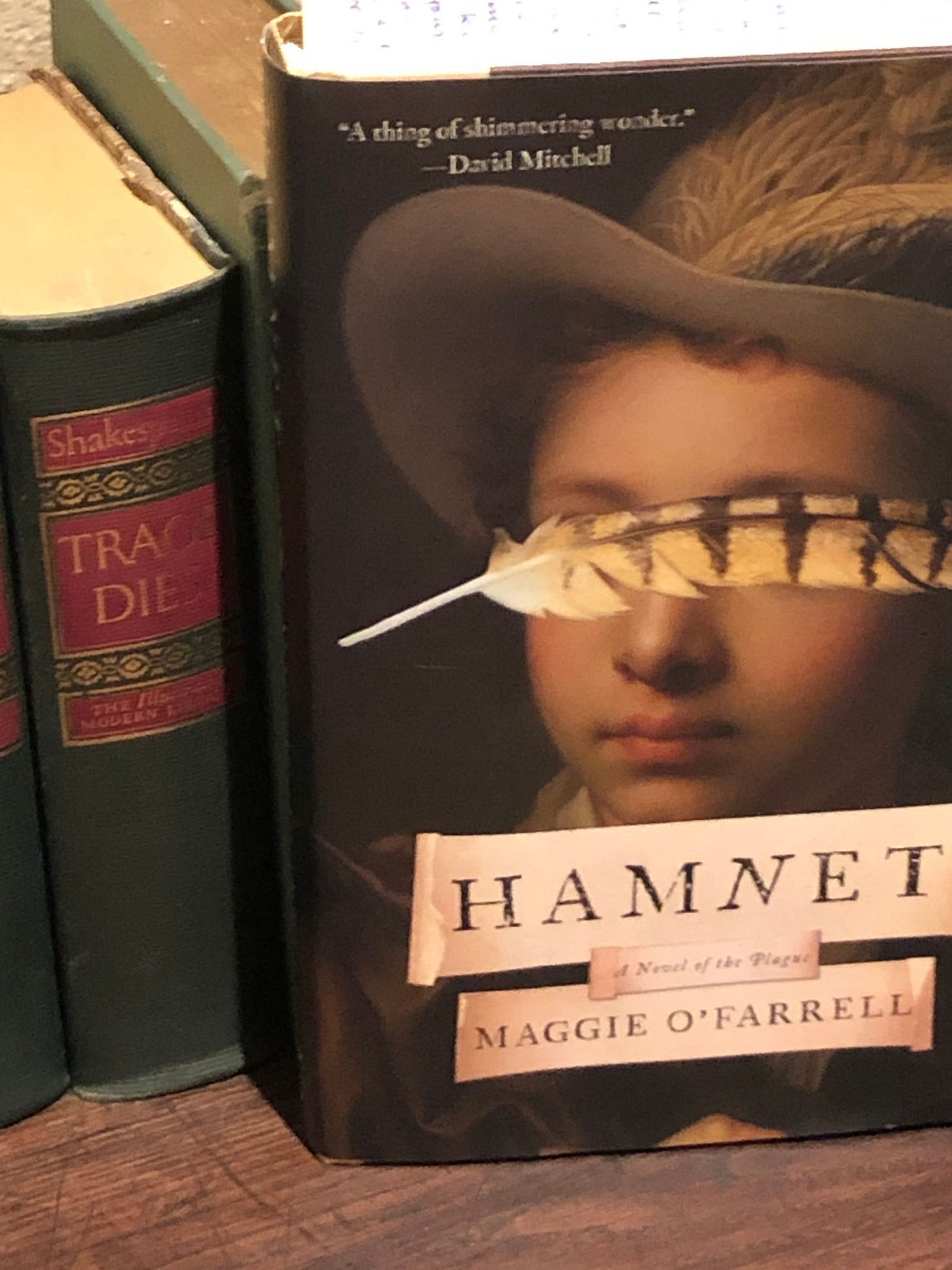Review of HAMNET
a novel that brought me out from under the shadow ...
It has been quite a while since I have been taken hostage by a novel. Covid snipped something in me that I am only beginning to retrieve. Fiction seemed too much of an indulgence. Similarly, I stopped watching television series. Instead I turned to non-fiction, large tomes on war and larger than life people. I revisited Churchill, the Civil War, the Second World War, even the Thirty Years War. I watched classic movies, dialing into Shenandoah, Good Will Hunting and Cider House Rules. It took me a few months to figure out that I was retreating into the past, fleeing this horrible year. History and film are passions that have supported me throughout my life. I have always turned to them when life is not quite right. Today, living in a Covid dystopia and watching America poisoned by an incarnation of Batman’s Joker, fiction feels insubstantial. The crop of all too hip and politically correct television series with their endless overly extended stories of identities lost and retrieved just feels too narcissistic for this moment. I needed to go away into more serious times with adults in charge and adults writing books. The only novel I read all the way through was Thomas Hardy’s passion play on the moors, The Return of the Native.
Hamnet by Marggie O’Farrell ended this aberration in my reading. While drawn to the historical fiction angle of the story, in the end, it was the book’s success as a breathlessly stirring and creative novel that swept me up. I am now on my third novel and feel that fiction has finally returned to my bedside table. Why Hamnet?
The context for the story is the life of Shakespeare and the setting is Elizabethan England, The former is shrouded in mystery and the later is refulgent in the colorful details of life. They both serve as the perfect stage for a story about a woman – Shakespeare’s wife. How much is fact or fiction does not matter. You meet her on the edge of the wild woods and despite marrying, moving into town and having three children while living amidst William’s complicated family, she actually never leaves those woods. She remains such a spiritual force at the center of this novel that even the great Bard himself takes a serious backseat. Reading parts of the novel felt like my first immersion into Atonement when the narrative left me breathless and utterly convinced. In each case I would emerge shocked that I had no one to share my emotions with. Twice Hamnet began to swerve and each time I wanted to stop and toss it aside terrified of the inevitable disappointment. Each time, however, the novel swung into deeper, more beautiful depths. The first was early on where I worried that Maggie O’Farrell’s Irish lyricism was getting the better of her only to feel how seductively she was setting me up. The second is near its triumphantly profound ending when finally the Bard delivers.
I do not want to spoil anything in this book. Please read it. While it is a contemporary take on the life of Shakespeare in many respects, it succeeds for all the traditional reasons: compelling characters, beautiful writing, terrific narrative structure … all mixed with a bit of pure originality.
Hamnet
Maggie O'Farrell (2020)
320 pages


